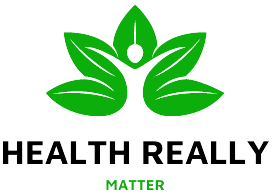Navigating Medicare can be complex, but understanding its components and eligibility criteria is crucial for seniors planning their healthcare coverage. Medicare is a federal health insurance program primarily for individuals aged 65 and older, as well as certain younger individuals with disabilities or specific medical conditions.
Parts of Medicare:
Medicare is divided into several parts, each covering different aspects of healthcare services:
- Part A (Hospital Insurance): Part A covers inpatient hospital stays, skilled nursing facility care, hospice care, and some home health care services. Most people do not pay a monthly premium for Part A if they or their spouse paid Medicare taxes while working.
- Part B (Medical Insurance): Part B covers outpatient services such as doctor visits, preventive care, lab tests, durable medical equipment, and some home health care services. Beneficiaries typically pay a monthly premium for Part B.
- Part C (Medicare Advantage): Part C, also known as Medicare Advantage, offers an alternative to Original Medicare (Parts A and B) through private insurance companies. Medicare Advantage plans often include prescription drug coverage (Part D) and may offer additional benefits like dental, vision, and hearing coverage.
- Part D (Prescription Drug Coverage): Part D provides prescription drug coverage through private insurance plans approved by Medicare. Beneficiaries typically pay a monthly premium, deductible, and copayments or coinsurance for covered medications.
Eligibility and Enrollment:
Most individuals become eligible for Medicare when they turn 65, although eligibility can also be based on disability or specific medical conditions. Initial enrollment typically begins three months before your 65th birthday and ends three months after. Delaying enrollment may result in late enrollment penalties, so it’s essential to understand your eligibility window and enrollment deadlines.
Choosing the Right Medicare Coverage:
When selecting Medicare coverage, consider factors such as healthcare needs, prescription drug requirements, provider networks, and out-of-pocket costs. Original Medicare provides flexibility in choosing healthcare providers nationwide, while Medicare Advantage plans offer integrated coverage with additional benefits and potential cost savings.
Conclusion:
Medicare is a critical component of healthcare coverage for seniors, offering comprehensive benefits tailored to their medical needs. Understanding the different parts of Medicare, eligibility criteria, and enrollment periods empowers seniors to make informed decisions about their healthcare coverage. At Health Really Matter, we’re committed to providing seniors with the information and resources they need to navigate Medicare and choose the right coverage for their health and financial well-being. Stay informed and explore your Medicare options to ensure you have the coverage that meets your needs in retirement.
